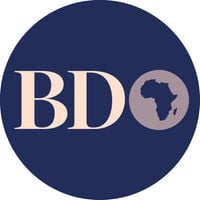A mobile phone user makes an M-Pesa transaction. FILE PHOTO | NMG
SUMMARY
- The surge in borrowing comes as households slowly recover from the economic knocks of Covid-19.
- The amount of cash disbursed on Fuliza hit Sh220.38 billion over the six months, marking a 25 percent jump from Sh176 billion in a similar period last year.
- The decline in value of loans disbursed via M-Shwari and KCB-M-Pesa saw borrowings via Fuliza overdraft service surge.
Borrowings from Safaricom’s overdraft service rose to Sh1.2 billion
daily in the six months to June this year, signalling the income shortfalls that have pushed many Kenyans to rely on short-term expensive debts.The amount of cash disbursed on Fuliza hit Sh220.38 billion over the six months, marking a 25 percent jump from Sh176 billion in a similar period last year. The jump in overdrafts translates to Sh1.2 billion daily borrowing between January and June this year, compared to Sh972.3million over a similar period of 2020.
The overdraft service introduced in 2019 and underwritten by NCBA Group and KCB Group allows customers to meet essential needs such as shopping, rent, sending money to friends and family or paying for goods and services on mobile money service, M-Pesa.
The surge in borrowing follows a period when the economy is slowly recovering from the loss of millions of jobs that has affected household incomes throughout the Covid-19 pandemic.
The impact of the pandemic has since reduced on easing of restrictions but the economy is yet to rebound to the pre-Covid period.
“Fuliza is still on a growth path that is why you see the most growth in digital loans this year is coming from Fuliza. We expect it to grow for quite some time and we still feel there is leeway for growth,” NCBA Group chief executive John Gachora said
Fuliza has become popular, especially as banks cut loans to households and businesses following the freeze on credit reference bureau listing for the better part of last year amid high rates of defaults even on bank loans.
KCB Group, Equity , and NCBA all reported that they had slowed down digital loans to avoid higher defaults in the wake of the listing freeze that lasted between April 1 and the end of September, forcing Kenyans to revert to the overdraft facility for survival.
The lenders also tightened approval measures when the Central Bank of Kenya (CBK) froze the listing of defaulters of Sh1,000 and below in a pandemic environment, creating a moral hazard for lenders.
The decline in value of loans disbursed via M-Shwari and KCB-M-Pesa saw borrowings via Fuliza overdraft service surge.
Kenyans who had the option of using digital loans were also denied facilities especially after the CBK threw hundreds of mobile loan sharks out of the CRB mechanism.
Credit information sharing is one of the most powerful risk-management tools for microlenders who typically don’t take collateral from borrowers when issuing short-term loans.
The lock-out of digital lenders from CRB listings saw a 50 percent decline in loans issued over mobile phones.
The Digital Lender Association of Kenya (DLAK) estimates that the value of loans issued each month fell by half to Sh2 billion.
The CBK told Parliament about 200,000 Kenyans were borrowing money on their mobile phones in 2016 but that had grown to two million in 2019, a tenfold jump.
The regulator estimates more than 100 unregulated digital lenders are operating in the country but has endorsed a plan under the Central Bank of Kenya (Amendment) Bill, 2021 to allow compliant microlenders to use the CRB which may challenge Fuliza’s growing dominance.
“It doesn’t affect us because we are already regulated by CBK. We just hope the bill regulation doesn’t kill innovation,’’ said Mr Gachora.
The increasing borrowings on digital loans indicate increased appetite for loans by households to sustain their living within restrained incomes.
Despite an improving economy from last year, companies are yet to absorb fully their workforce or adjust the salaries of their employees as they continue to battle with elevated fuel expenses, high cost of raw materials and inputs, and rising inflation softening demand and consumption.
NCBA said Sh44.8 billion worth of loans were disbursed over the period through M-Shwari, which is also offered in partnership with Safaricom, representing a borrowing rate of Sh247.5 million daily.
“The outlook on digital continue to remain quite positive. We think M-Shwari is reaching its plateau level with 26 million customers,” Mr Gachora said.
The jump in borrowings through Fuliza also indicates the shift to the service following a rise in minimum M-Shwari loan limit four times to Sh2,000 from Sh500.






No comments :
Post a Comment